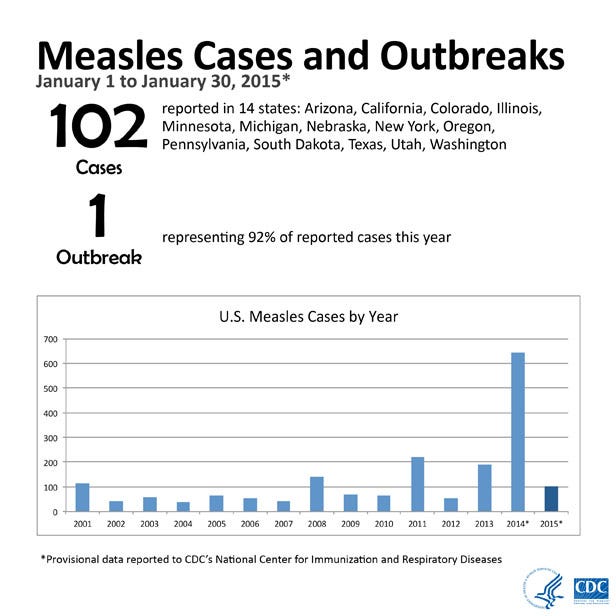I’ve tried to stay away from the vaccine debate, but it’s reached a psychological tipping point for me.
Watching the back-and-forth on social media alone has made it clear that there are massive critical thinking issues. And if we’re going to get to any sort of agreement or respect between the camps, those critical thinking issues have to end.
As the title says, I want to bring sanity to the discussion. That doesn’t mean I want to change your position on vaccines…it means I want people to stop acting irrationally.
So, while this is quite random, here’s what needs to be addressed in order to restore sanity…
Let’s fix the misuse of the word “consensus.”
The Definition: An idea or opinion that is shared by *all* the people in a group.
How it’s used in the vaccine debate: An idea or opinion that is shared by *a majority* of the people in a group.
Why it matters: There have been countless times in history where the majority of scientists and researchers agreed…and were wrong. Also, using the term “consensus” in this way is always dangerous in the realm of scientific research because there is an automatic obedience to authority for the simple reason that most people are not truly educated on complex matters of science.
A famous example of the consensus error is called the Semmelweis Reflex. Ignaz Semmelweis was a doctor who found—and argued—that hand-washing by doctors reduced childbed fever mortality rates ten-fold.
It turns out that medical doctors (the trusted authority) used to perform autopsies and then see patients, including pregnant women, without washing their hands. This was the widely accepted practice at the time and Semmelweis objected to it. He was eventually shouted down and run into an insane asylum (literally) by his peers for advocating something that is blatantly obvious to us today.
The “consensus” argument was used as a weapon to defeat Semmelweis. But “consensus” is not an argument and using it as one is a logical fallacy. If you want to argue for the validity of vaccination, do so. But saying, “there’s a scientific consensus” isn’t a valid argument, especially when you’re misusing the word “consensus.”
While we’re at it, let’s make sure we’re using the word “eradicated” correctly.
The definition: destroy completely; put an end to.
How it’s used in the vaccine debate: It was significantly reduced.
According to the CDC, Measles has never been eradicated, though the term is thrown around pretty loosely.
It should also be noted that this is a global economy. We live in a time of planes and boats. Things arrive here from other countries.
In other words, blaming the “OUTBREAK!” on unvaccinated people in the U.S. is a bit of a stretch.
This also doesn’t take into account that there is a very legitimate debate about the cause of the decline of measles cases and deaths. It should not (even though it is) be automatically assumed that the vaccine ended the epidemic. There is no “consensus” on that.
If you want credibility, you can’t misuse terms that have very concrete definitions. That’s one of the first symptoms of appealing to emotion and debate manipulation.
Let’s get something else out of the way: violence can’t be your answer.
Not everyone advocates for vaccinating people against their will, but many do. One of the [legitimate] fears among those who don’t vaccinate is that vaccine advocates will use the power of government to force vaccination compliance.
If you want to be taken seriously, you can’t possibly support this because it directly contradicts your own beliefs about your body and your rights.
Even though many people have never heard of the Non-aggression Principle (NAP), they agree with it when it’s presented to them.
Forced vaccination does not adhere to the NAP. If you agree with the NAP and are also for forced vaccination, you’re contradicting your own beliefs.
We’re all adults here. Sell your position with reason, don’t cram it down people’s throats (or lock them in rooms and inject their children with it).
I guess this is a good place to throw in this, too: If you’re “pro-choice” when it comes to abortion, then you can’t be anti-choice when it comes to vaccines. That’s just silliness. “It’s my body” can’t only apply to killing babies.
Reality: Both sides want the same thing.
An unfortunate charge often wielded by vaccine advocates is that those who choose not to vaccinate are “reckless,” “stupid,” and “thoughtlessly endangering others.”
Vaccine advocates are vehemently protective of their family…and so are the parents who choose not to vaccinate. Both sides want the same thing: to make the best decision possible for their family.
A key difference is that it often takes more thought to reject the status quo than it does to accept it. This is especially true when you understand that our society’s foundation is one of blind obedience—that’s what’s taught to the vast majority of our population through 13+ years of public schooling.
Obedience to authority is why the Stanford Prison Experiment worked and it’s why the Milgram Experiment worked.
One of the worst things you can be in life is blindly obedient to authority. It’s a forfeiture of your personhood—an acknowledgement of your nothingness.
So if you’re a vaccine advocate, I certainly hope you’ve done extensive research. Otherwise, you’re not just injecting your loved ones with something you know relatively nothing about, you’re doing so at the behest of a group of people you largely know nothing about.
If you choose not to vaccinate, I certainly hope you’ve done extensive research as well. Otherwise, you’re potentially putting your family members at risk.
Reality: Only one side has to overcome two significant challenges: the political motive and the profit motive.
(And often those two things are one in the same).
Question One: Do doctors receive any benefits from vaccine manufacturers?
Question Two: Does the government receive any benefits from vaccine manufacturers?
Question Three: Do researchers and educators receive any benefits from vaccine manufacturers?
Those are important questions, wouldn’t you say? Do you know the answer? Just be honest with yourself.
If you’re a vaccine advocate and you don’t have a confident answer to all three of those questions, that’s a bit reckless.
Anyone who thinks the medical establishment wouldn’t [almost] universally recommend something that’s [almost] totally unnecessary hasn’t looked into cholesterol and statin drugs or the [non] link between saturated fat and heart disease.*
*The government has peddled this same myth for decades. The entire food pyramid is a giant manipulation designed to reward Big Agriculture. And “manipulation” is not a shock-term. If you’ve never heard of Luise Light, then you’re grossly misinformed about what the federal government is capable of when it comes to pulling wool over the eyes of the American people.
Anyone who thinks the research establishment won’t come to specific, pre-determined conclusions due to collusion between governments and industry probably doesn’t know that 97–99% of medical journal advertising profits come from pharmaceutical companies, to the tune of hundreds of millions of dollars a year.
Or that those who masquerade as “independent medical experts” aren’t so independent.
Today, medical-journal editors estimate that 95 percent of the academic-medicine specialists who assess patented treatments have financial relationships with pharmaceutical companies, and even the prestigious NEJM gave up its search for objective reviewers in June 1992, announcing that it could find no reviewers that did not accept industry funds. (s)
This is a significant challenge to overcome. Unsafe things can be made to seem safe if the right amount of money or power lands in the right hands. And if enough hands are involved, combined with hefty doses of fear and paranoia, a “consensus” can easily brew.
I’m not saying that’s happened, but you must acknowledge that it’s a challenge. All of a sudden, citing “research” isn’t all that valuable unless you’ve researched the researchers.
Have you?
This isn’t far off from the Global Warming debate, by the way. There’s a “consensus” (misuse) there also. And “deniers” are treated in much the same disrespectful way as Semmelweis…and those who don’t vaccinate.
But the evidence that the government, researchers, media, and practically everyone else with a fingerprint on anything Global Warming related has manipulated data continues to arrive from every crack and crevice.
The government, especially when in bed with Big Business, has a horrible track record of manipulation and cronyism in nearly every industry. It’s not a stretch to be cautious about these relationships when it comes to vaccines.
Lesson: Maybe we shouldn’t build “consensuses” on such shaky foundations?
Speaking of: Is it legitimate that the government passed a federal law prohibiting lawsuits against vaccine manufacturers?
It’s not a statement, just a question.
If you’re a vaccine advocate, it would help your case if vaccine manufacturers weren’t themselves immune from the repercussions of putting out a potentially dangerous product. Then you could at least make the argument, “Hey, if your kid dies or gets seriously injured, at least you’ll be rich.”
But it begs the question: why is the government in the business of protecting a “big bad corporation?”*
*If you supported that 99% movement a while back, hate Capitalism, or hate rich people, then you also should hate vaccine manufacturers and those who protect them, should you not?
The only way the market works is if the manufacturers of products that harm people can be litigated against.
When you give the government the power to make people immune from litigation, and that government is in bed with said people, it brings us back to point #4…this is a significant challenge to deal with when making the case for the widespread use of vaccines.
Is it ever legitimate for the government to remove the risk of litigation from a company? The answer, if you care at all about your own wellbeing, is no.
“You’re putting people at risk of death.”
I’m not going to make an argument about vaccine efficacy or the potential for unvaccinated people to put vaccinated people at risk (or vice versa). What I’m going to argue is that the “putting others at risk of death” argument defeats itself based on statistical significance.
Most of the hysteria and current vaccine debate is in regards to the current measles “outbreak,” so we’ll use that as an example.
The death rate among those infected is typically 0.2%, or close to equal that of your chances of dying in a car accident this year.
In other words, if you’re that concerned about people vaccinating to prevent death, you should be making an equally strong case that both of you have your driver’s licenses revoked.
Actually, it’s worse because you have a 0.2–0.5% chance of dying in a car *this year* and it’s almost certain that you actually drive a car. The 0.2% chance of death by measles requires that I (or my child) beat the ENORMOUS odds to even get measles in the first place.*\

The same odds hold pretty steady for measles injury, except car injury wins out even more. And the chance of being killed or injured by the measles vaccine still surpasses the chance of being killed or injured by measles itself.
Again, I’m not arguing for or against vaccines, I’m arguing for sanity. If you believe that “you’re putting people at risk of death” is a valid argument, then the injury/death by vaccine argument is equally (actually it’s moreso) valid, is it not?
*This also covers the “not vaccinating your child is child abuse,” “is negligent,” and “should be criminalized” arguments.
“You need to vaccinate for the good of the herd. You’re putting us at risk!”
Putting the science about herd immunity aside, this argument is faulty because its premise is that I should alter my behavior for the good of the collective.
If that’s your belief, then at least own it in full…
I invite you to start MACB (Mothers Against Cesarean Birth) and SAIF (Society Against Infant Formula). Don’t forget to march against the current industrialized food supply (you don’t eat that stuff, do you?) and the government who subsidizes it.
This is a debate about immunity, is it not? If it is, then how can you not mandate vaginal birth and breast feeding until the age of two (minimum), the two primary components of the development of a healthy immune system—an immune system that can reduce the spread and severity of disease along with injury and death rates?
How can you support the current industrialized (and subsidized) food supply full of grains and sugars that are ravaging child and adult immune systems and leading to the preventable deaths of hundreds of thousands of more people than the diseases you wish to vaccinate against?
If this is about herd immunity and doing whatever it takes for the good of the collective, then let’s start REALLY focusing on the immunity of the herd! Who cares if that mom is struggling to produce breast milk—she needs to woman-up and nix those bottles, does she not? Who cares if she’s at high risk for vaginal birth complications…this is about all of us, not just her!
See, I don’t particularly care what your position is…I just want you to fully support it.
“Vaccines aren’t natural, so I’m opposed to them.”
You can be against the use of vaccines, but this not a legitimate argument. It doesn’t require much discussion, it’s a textbook logical fallacy.
You can do better.
“Vaccines cause Autism or [X]”
I’ve never been a fan of blanket statements.
Kids get something like 49 doses of 16 different vaccines before the age of six. It’s obvious that there are known cases of side effects—including death—from vaccines.
The reason one child may have a bad reaction where another child doesn’t is still being (and should be) hotly debated.
With Autism specifically, there is a correlation between Autism rates and vaccine rates. But correlation does not equal causation.
The general statement that vaccines cause Autism is unacceptable. Is it a specific vaccine? Is it a combination of certain vaccines? Is it the full vaccine schedule? If it’s not a guarantee that Autism will occur (and it’s not a guarantee that vaccines are 100% safe), then what is the underlying trigger?
It’s not like vaccines don’t have legitimate safety concerns. If we were talking about water and someone claimed that water caused Autism when water is otherwise 100% safe for all people to consume, that would be absurd. But we’re talking about something that has known safety issues and reactions other than Autism, so it’s something that should be looked at more closely.
See, there’s a lot of things to sort out. While I can’t say for sure that the use of vaccines has never caused a case of Autism, I also can’t say that it has. I’m not sure anyone can confidently say yes or no on either side, can they?
So the charge that vaccines cause Autism is a bad argument. We don’t need more vitriol though, we need more data. There’s obviously an underlying issue that is triggering sometimes horrific reactions (I’m not saying Autism is a horrific reaction) in certain people. It would be best for all involved to work to identify that trigger.
It could be that vaccines don’t cause Autism, but do trigger a change in some people that make the conditions for Autism ripe. For example, there’s a lot of research coming out linking Autism to the gut biome. It’s no secret that 70%+ of the immune system is located in the gut. Could the alteration of glut flora in a certain way (via any trigger, not just vaccines) create the conditions for the development of Autism? Who knows? Do you know?
It’s easy to make blanket statements on either side. Finding the truth is a bit tougher. Perhaps we need to increase our mutual desire for data and decrease our rampant confidence?
In any case: it helps if everyone just stays sane.




















